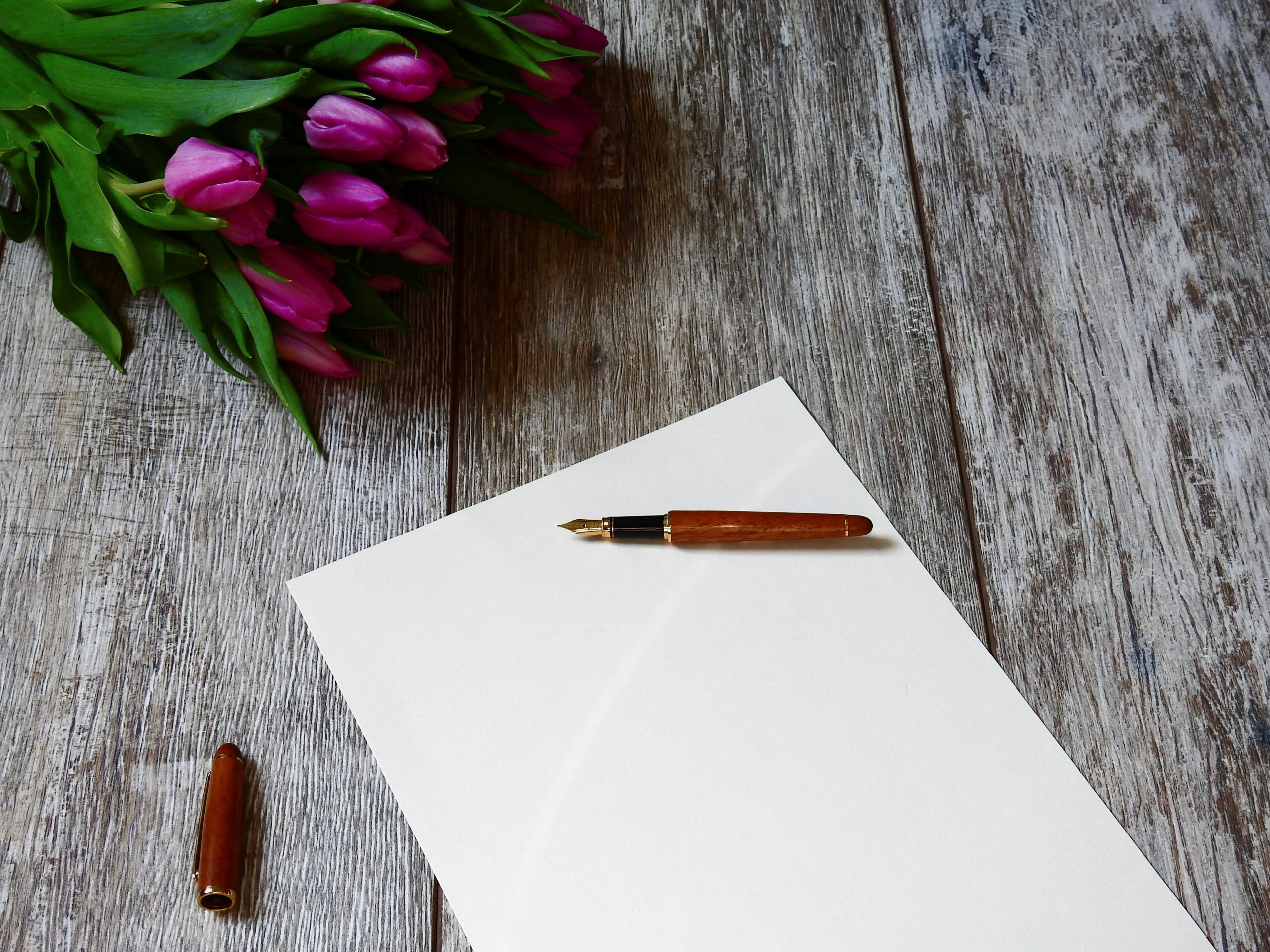

Fancy something positive in your inbox? Sign up
Writing yourself a letter can be a radical act of self-love; all you need is pen and paper
When I was sixteen I wrote a letter to myself. It was Millennium Eve and, having picked up the idea from a magazine, I sat on my bedroom floor and wrote down all my wishes. I signed it with a flourish, slid it inside an orange envelope and labelled it Do Not Open Until 2010. It didn’t last that long but, when I did open it, I saw how much younger me wanted what the current me had. She also reminded me of forgotten things. It was a new way to talk to me. It planted a seed.
Nineteen years later I wrote another letter: one that wasn’t filled with hopes and dreams for the future, it simply told me I had one – even though it seemed hard to believe.

If you haven’t lived with depression it can be hard to understand – if you have, your experience may be entirely different from mine. The uniqueness of it keeps us disconnected, and when we’re isolated we’re also ashamed. For me depression is like an ashen wasteland in an apocalyptic novel: everything is heavy and grey. Your heart is beating, your lungs are pumping, but the colour of the world is gone.
It’s where I was when I wrote my second letter. Working full time as a teacher, writing a novel (which – not incidentally – was the coming-of-age story of a young woman with depression) and repressing every challenging emotion had taken its toll. One day I came home and couldn’t stop crying; the hours that followed remain the most frightening of my life. I knew that despite going through the motions of everyday life, nothing was ok.
I was signed off work and took life in tiny steps. Yet, I was due to go on a dream trip to New York. I knew I’d have a good time, but the thought of coming home filled me with dread. So, I followed an intuitive nudge to write myself a letter. I scribbled compassionate and comforting words and left them on my pillow.
When I returned a week later, vulnerable and shaken, they told me I didn’t have to do anything: didn’t have to have it figured out or explain anything to anyone. I just had to stay here, on this earth, and keep breathing. The words gave me the strength not just to go on, but to learn how to thrive in my life as I was supporting, not criticising myself. I showed myself I mattered.
As I recovered, letters became an essential tool. When I was in a good place I’d write a down-in-the-dumps letter for when I felt less well; when I was going back to work I told myself it didn’t matter if I wasn’t ready, I was proud of me anyway; and on New Year’s Eve, I praised myself for getting through.
At times, I’d write about my wishes again, however, they held less weight. Unlike my sixteen-year-old self, I accepted I wasn’t living in a movie – instead, I was living in the now. There would be frustration and disappointment as well as triumph and joy. The feeling that I could handle all of it, that I’d just love myself more if things went wrong, helped me take risks. I dreamt with action, instead of just words, and I started teaching others what I knew.
Writing is transformative as you, and you alone, know your journey. Other people can shower you with compliments, but their words evaporate when you can’t feel them. You know what you’ve been through; your self-judgements; how you’ve changed; what challenges you and what you care deeply about. You also know what you need to hear. When you unlock those words a kind of magic happens.
The thing my letters all have in common is this: they’re from me to me. They’re filled with ideas for my life. In a world where we so often give our focus to others, whether it’s those close to us or strangers on Instagram, it’s not only worthwhile. It’s radical.
PENNING A LETTER TO YOU
Some phrases to start can be:- I know you’re feeling…/I want you to know…/I’m so proud of you for…
Joanne Bell is the founder of Write to Thrive, Soulful Space for Self-Expression. She writes a weekly letter including free journal prompts – https://writetothrive.substack.com – and you can find her (and pictures of her dog) on Instagram – https://www.instagram.com/writeandthrive